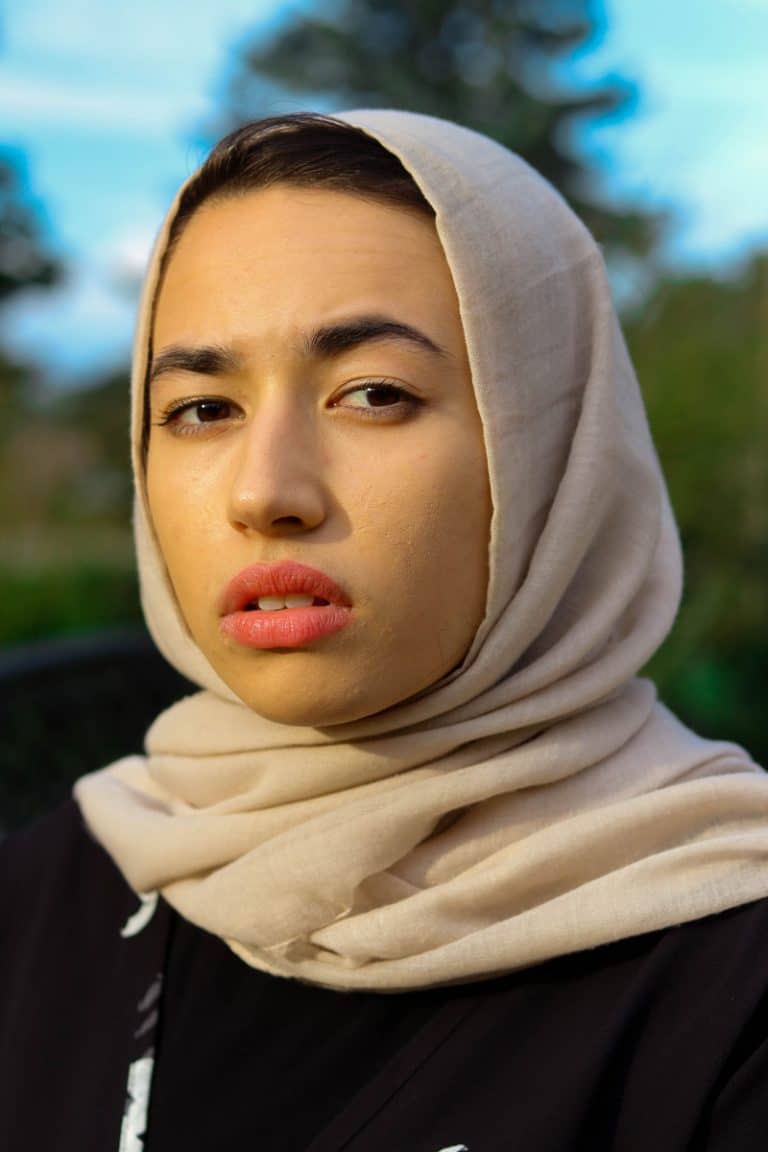
Opinion
Why people need to accept that the hijab is about so much more than obedience
By Zeynab Mohamed
Opinion
Why people need to accept that the hijab is about so much more than obedience
By Zeynab Mohamed
Updated May 19, 2020 at 09:57 AM
Reading time: 3 minutes
Human rights
Dec 12, 2019
It wasn’t until I was 15 years old that I realised people held opinions over my hijab. I was on a French exchange trip and as soon as I arrived at the school, I was whisked away to an empty canteen and told that I wouldn’t be able to wear my hijab there. I felt like I was having an out of body experience, and I was soon in floods of tears. I didn’t realise that hijabs, along with other visible religious symbols such as kippahs and crucifixes, had been banned from French schools since 2004.
This was my first experience of real heartbreak. I was distraught and furious with my teachers for not warning me; with the school; even with the law. The irony is that for the whole time I was on the exchange, I wore this hideous pink bandanna that entirely covered my hair. It gave me back a sense of control and comfort, which I had come to associate with my hijab. Of course, because it was a bandana, it wasn’t a problem anymore.
I started wearing a hijab at age 13, when my mum presented me and my two younger sisters with hijabs and asked us if we wanted to wear them. My mother is a woman of few words, so there was no explanation, no bid to encourage us. It wasn’t a surprise—I’d grown up around hijab-wearing Muslim women—although my sisters both rejected it at first. I was excited by the idea of the hijab and had taken to it beyond the expectation of my mother. For me, it symbolised maturity and adulthood. I was more than willing to engage in anything that proved my ‘adult status’.
I had grown up in an environment where the hijab didn’t foster any negative connotations, and I was desensitised to its different interpretations. I was presented with a positive view of it, and was more than happy to accept this perspective, content with the idea of eventually wearing a hijab.
This isn’t the common trajectory for all Muslim women, as some decide not to wear it. Ultimately, the reason they chose to wear the hijab is an act of religious worship. Part of being religious is implementing acts of worship in your everyday life as a way to build faith.
Recently, I’ve started to feel the same way I once did, at age 15. With Boris Johnson firmly installed, I fear that I will be put in the same position in my home country as I was put in on that school trip in France. In a Sunday Telegraph column, Johnson likened Muslim women in burkas to “letterboxes.” In a 2016 YouGov poll, 57 per cent of the British public voted in favour of banning the burka.
Is the hijab different from the burka? Yes, aesthetically. I’m personally not ready for a burka, the hijab is enough to connect me to my religion. But, to debunk a big myth here, the burka and the hijab essentially represent the same thing. They’re both just the outward expression of acts of worship. The problem isn’t the act of wearing the hijab or even the hijab itself, because it is only a piece of cloth. The problem is what it has come to be associated with it. The hijab now represents for many a form of dictatorship on how women should dress. But for a lot of Muslim women, it is, in fact, the complete opposite. Religion and the female dress code is impossibly complicated, but rarely do people consider what it means to the individual female. For me, it’s neither about obedience nor modesty, but rather engaging in worship while also expressing a part of my identity.
With Muslim women commonly portrayed as passive, oppressed and a vehicle of strict Islamic regimes, people develop their own preconceived judgements. Last summer, while I was away on holiday with my family in Lisbon, we were having dinner, and a lady approached our table and asked whether she could take a photo of us. We were completely baffled, but quickly assumed that she wanted us to take a photo of her and her partner. That was not the case; she really wanted to take a photo of us. Why? She told us she had never come across happy and smiling Muslim women. Was it truly a rare occurrence or was this the view commonly portrayed of Muslim women firmly cemented all over the world?
I had never been made to feel so small and uncomfortable in my hijab. I was angry—I still get quite angry thinking about it—but also filled with an overwhelming sadness to think that when a person sees me, they see an unhappy controlled Muslim woman.
This crusade against the hijab may not only be fruitless, but actually harmful to many Muslim women who choose to wear it. Reports show that a considerably higher proportion of attacks on Muslims are launched against women who wear the hijab. I am aware that my hijab makes me a target, but it also, somehow, offers me protection. I am not afraid to wear it, because I am not afraid to be myself. But I am cradled by the fear that my expression of my beliefs could be so easily taken away from me. Poof. And then, suddenly, like millions of other women, I will be forced to do my hair nicely every morning. And that’s a mundane act that I am terrified of.




